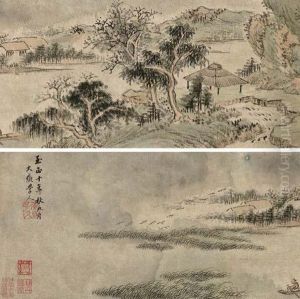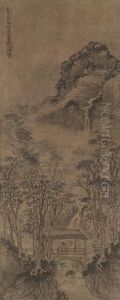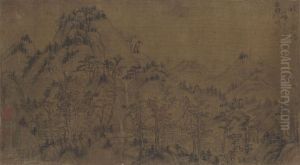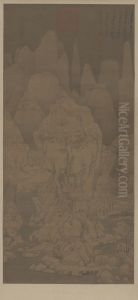Huang Gongwang Paintings
Huang Gongwang is one of the most celebrated painters in Chinese history and a seminal figure in the development of the literati painting tradition during the Yuan Dynasty. Born in 1269 in Changshu, in the Jiangsu province of China, Huang was originally named Lu Jian, and he adopted 'Gongwang' as his sobriquet. His early life was marred by political turmoil; the Mongol conquest of China and the establishment of the Yuan Dynasty led to the suppression of the Chinese scholar-gentry class.
Despite the difficulties faced by scholars in this era, Huang Gongwang managed to become a government official. However, at the age of 38, he was falsely accused of a crime and imprisoned for several years. Upon his release, he chose to distance himself from officialdom and instead focused on painting and Daoist studies. During this period, Huang began to develop his unique artistic style.
Huang Gongwang is best known for his landscape paintings, which were often based on real locations but transformed by his imagination and artistic techniques into places of idyllic beauty. He is considered one of the 'Four Masters of the Yuan Dynasty,' alongside Wang Meng, Wu Zhen, and Ni Zan. His works are characterized by loose, expressive brushwork, and an emphasis on the rhythmic flow of the landscape. He often used ink monochrome, which became a hallmark of literati painting, a style that emphasized personal expression and scholarly knowledge over the more decorative and detailed techniques favored in court painting.
One of Huang's most famous works is 'Dwelling in the Fuchun Mountains,' a large handscroll painting that exemplifies his mature style. This painting has been praised for its naturalistic representation of the landscape, its lyrical quality, and its reflection of the artist's deep understanding of Daoist philosophy, which emphasizes harmony with nature.
Huang Gongwang's influence on Chinese art was profound. His approach to landscape painting became a model for later generations of literati artists, who sought to express their personal feelings and scholarly ideals through their work. Despite the lack of many surviving works attributed to him, his artistic principles and techniques were passed down through his students and admirers, cementing his legacy as one of the great masters of Chinese painting. Huang Gongwang passed away in 1354, leaving behind a body of work that continues to be studied and revered to this day.





